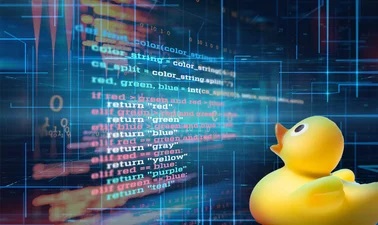
This course starts from the beginning, covering the basics of how a computer interprets lines of code; how to write programs, evaluate their output, and revise the code itself; how to work with variables and their changing values; and how to use mathematical, boolean, and relational operators.
By the end of this course, you’ll be able to write small programs in Python that use variables, mathematical operators, and logical operators. For example, you could write programs that carry out complex mathematical operations, like calculating the interest rate necessary to reach a savings goal, recommending apparel options based on weather patterns, or calculating a grade based on multiple percentages.
Structurally, the course is comprised of several parts. Instruction is delivered via a series of short (2-3 minute) videos. In between those videos, you’ll complete both multiple choice questions and coding problems to demonstrate your knowledge of the material that was just covered.
This course presupposes no prior knowledge beyond basic arithmetic; knowledge of high school-level algebra, however, is desirable.
Wide Choice
Explore expert-led technical, leadership & personal growth courses.
Customized Learning
AI-powered recommendations so you follow what fits your goals.
Certifiable Skils
Earn recognized certificates to showcase your progress.
Practical Impact
Gain immediately usable knowledge you can apply at work or life.
Progress Tracking
Track your growth every course, see how far you’ve come.
Career & Personal Growth
Advance professionally while growing personally.
We combine wide course variety, AI-driven personalization, and practical content so you learn what matters, efficiently.
Yes, every completed course grants you a certificate to validate your achievements.
They range from beginner to advanced. No matter your level, there’s a fit to help you grow.
Our platform uses AI to analyze your progress and suggest courses tailored to your goals.
ClearTech provides progress tracking tools so you can monitor learning achievements as you complete courses.
Yes, once you enroll, you can access your courses online and start right away.